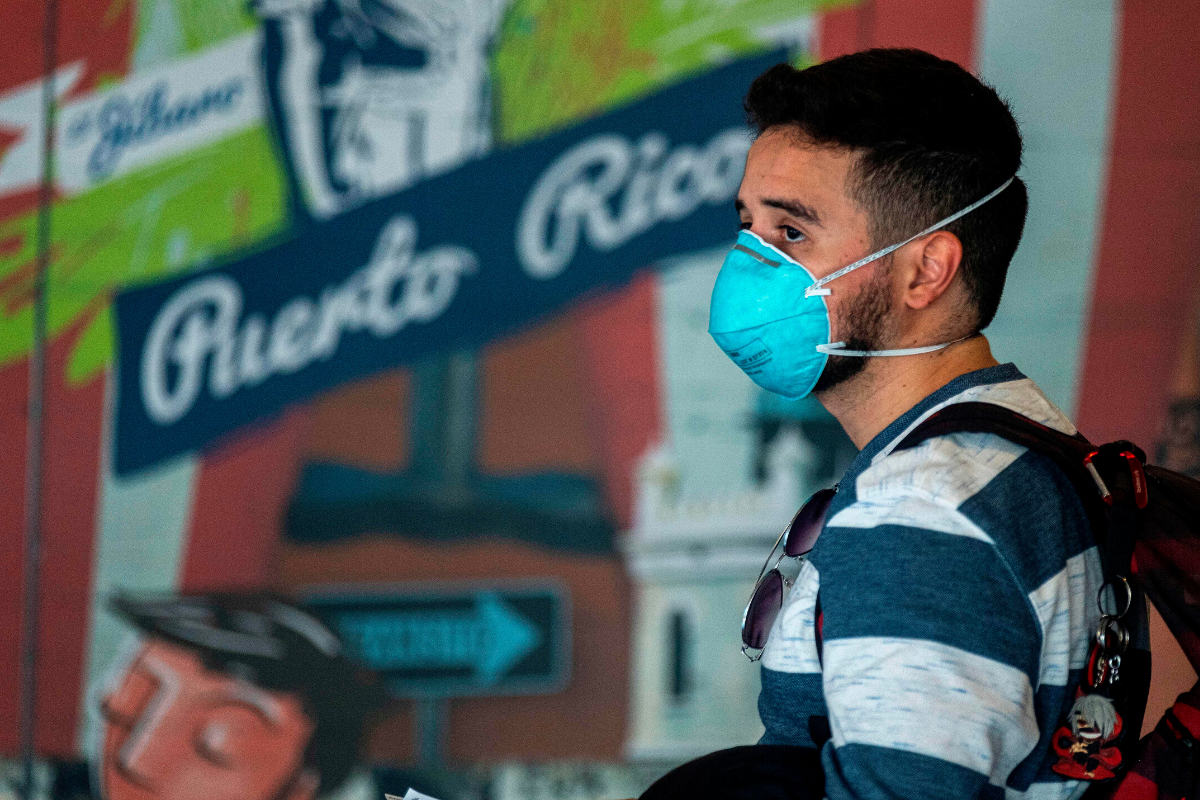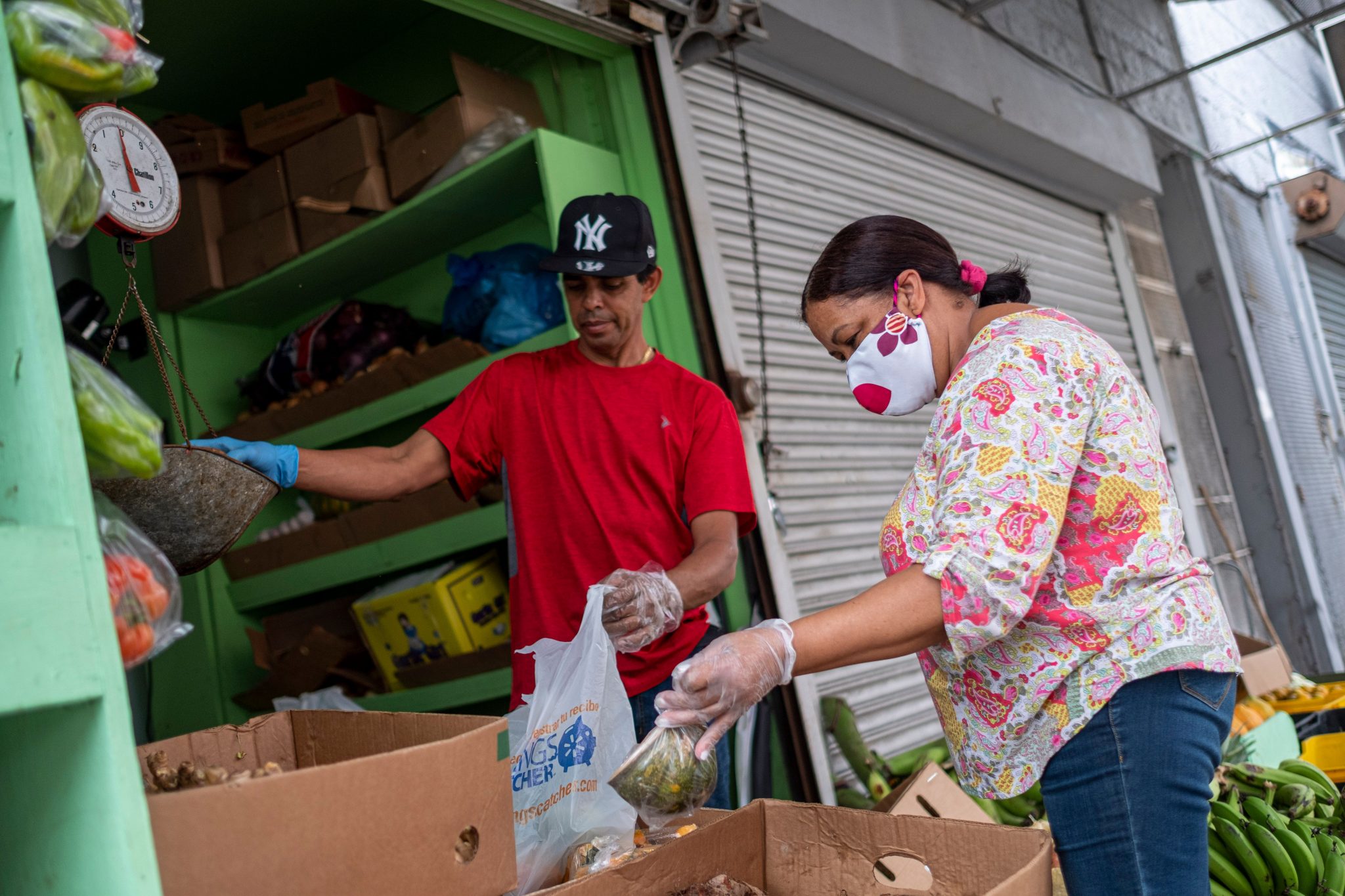

On Sunday March 15, Puerto Rico’s Governor Wanda Vázquez imposed a curfew and ordered the shutdown of most businesses in hopes of slowing down the spread of the novel coronavirus (COVID-19). (Photo by RICARDO ARDUENGO/AFP via Getty Images)
SAN JUAN, Puerto Rico — On paper, the government of Puerto Rico seems to be doing everything right with the current COVID-19 crisis. The territory has one of the most rigorous countermeasures in the United States, including a mandatory curfew until April 12 that has closed non-essential businesses and is now allocating days to go to essential businesses based on license plate numbers.
Although the efforts of the Puerto Rican government are commendable for its rapid response, underlying issues like lack of transparency and organization are a problem.
“I do not fully agree with some parts of the restrictions, but I have to accept that compared to a large number of countries, here there was a more efficient response… or at least that is what we think, because the reality is that very little is known in terms of data about the real full picture that we have not yet been able to see,” said Etienne Von from Santurce.
Puerto Rico has a long list of hiding facts and information from the press and general public. For some citizens, this is a cause of concern when it comes to the coronavirus response. In the face of all that is happening with COVID-19 in Puerto Rico, some people feel mistrust and fear.
“Our political leaders [elected and not] have not only shown us the inability to handle high-risk situations and emergencies, but the modus operandi of a system designed so that things that one intuits as basic, be it food, health, and the guarantee of an equal education and opportunity for its citizens have used it to profit from and weaken the lives of Puerto Ricans living on the island,” said Jan Alberto Rodríguez-Torres, a student at the University of Puerto Rico.
Every day, the Health Department has been releasing official numbers that confirmed cases, deaths, and tests that are awaiting results. But it’s hard for citizens to trust a non-elected administration so closely associated with concealing the true number of deaths caused by Hurricane María.
When you add that two secretaries from the Health Department resigned in less than two weeks, Puerto Rico’s government is not doing much to put people at ease.


A woman wearing a protective mask buys produce from a street vendor in San Juan, Puerto Rico on March 25, 2020. (Photo by RICARDO ARDUENGO/AFP via Getty Images)
Rodríguez-Torres believes that Vázquez’s administration has not taken timely precautionary measures because it lacks a plan of action for impoverished communities, including those still recovering from the earthquakes in January.
A main concern against Vázquez’s administration is the fact that she was not elected, and inherited an administration riddled with corruption and a history of lacking transparency and withholding information from both the press and the public.
Another concern for many is the economy. On Monday, the Governor announced a $787 million package that was meant to relieve sectors most affected by the coronavirus. This package includes $500 for people who are self-employed, $240 million for technology for the Department of Education, and $30 million for purchasing equipment for hospitals.
Vázquez also announced a 90-day moratorium on mortgages, car payments, and loans (both personal and commercial).
Although some of these measures have been praised, others have found gaps and have raised concerns over the long-term impact.
“We consider these measures positive, but they do not have the capacity to inject money into the economy,” said Adrián Alós, co-founder of Abexus Analytics.
Alós and his business partner, Eduardo Burgos, alongside epidemiologist José Bartolomei created a report on how the quarantine and curfew could impact the Puerto Rican economy. They created two scenarios.
Scenario A sees estimates that three weeks of quarantine would take five to six months for the economy to bounce back. Whereas scenario B, three months of quarantine would result in 12-14 months for things to go back to normal.
Alós and Burgos pointed out that small businesses would be hit the hardest, including its employees. This means that average Puerto Ricans would feel the impact of a destabilized economy as much as those invested in it.
As of this publication, Puerto Rico has 79 confirmed cases, 3 deaths, and is awaiting for over 300 tests. At the same time, the website for the Health Department is down.


Screen grab of salud.gov.pr, 3:30 p.m. ET
Meanwhile, the government has assured its bought test kits and is prepared, but when pressed for answers, it fails to comment.
***
Natalia Rodríguez Medina is a journalist based in Puerto Rico. She tweets from @nataliarodmed.


